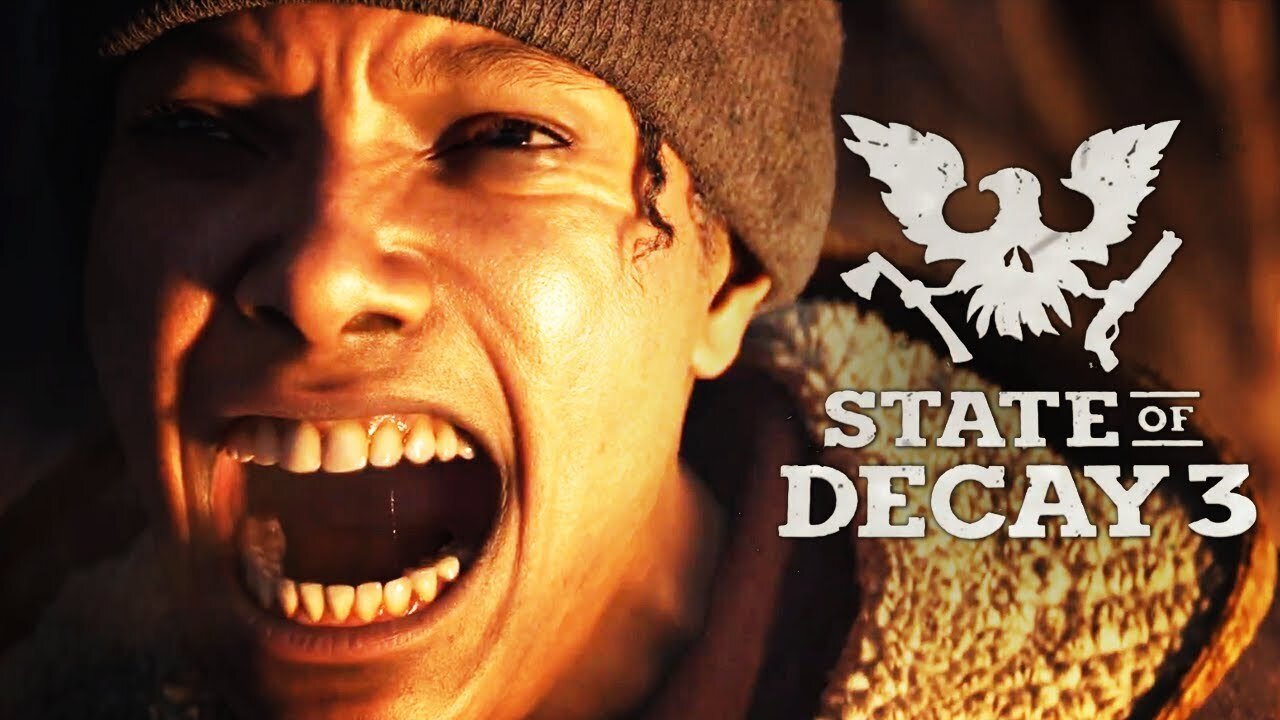The first big Xbox Series X games have been revealed. Here's what we thought
When analysing last night’s long-awaited showcase of upcoming first-party games, it’s important to couch Microsoft’s Xbox Series X plans and presentations in a rather specific context. This isn’t a standard next-generational jump, according to the growing weight of official messaging. Where Sony is presenting the PlayStation 5 as the unambiguous “future of gaming”, the Microsoft’s new console is being referenced as a soft transition point, allowing existing Xbox One players to upgrade as and when they want.
All first-party Xbox games will be available on both formats for the foreseeable future (‘At least the next couple of years’, according to recent statements), with simultaneous PC releases also landing, and free cross-gen upgrades being encouraged in third-party publishers. The overall impression is of a progressive move away from the console upgrade cycles of old, and toward something more similar to mobile phone refresh patterns. A new machine available with benefits for the most dedicated core of early adopters, but no-one really misses out by waiting a while.
On paper, that’s a solidly consumer-friendly shift for the industry, though it remains to be seen whether a move away from the launch-day hype of system-selling games is actually what the core gaming audience wants in the immediate term, or if slowing down the train might make for less excitement in the face of Sony’s full-fat next-gen promise. It’s potentially also slightly muddled messaging, clashing against Microsoft’s other mantra of the Xbox Series X’s game-changing horsepower.
Though at the same time, a long term play designed simply to keep players in the Xbox ecosystem - whatever the hardware being used - makes a great deal of bigger-picture sense in regard to paving the way for Microsoft’s longer-term xCloud streaming plans. Regardless, whatever the overall plan, a focus-shift away from hardware and back toward games needs compelling games to back it up. So what did we get last night?
The gameplay premier of the long-teased Halo Infinite was an obvious big-hitting opener, and delivered a game in transition itself. Developer 343 Industries has apparently dropped the controversial split-narrative, double-protagonist sprawl of Halo 5 to double down on an augmented version of traditional Halo values, ramped up by open-world navigation and the apparently now requisite grappling-hook traversal.
All sensible moves, and potentially much more natural evolutions than Halo has seen of late, but it’s too early to tell how much freedom is too much freedom when it comes to maintaining the series’ tight, combat essence. Still, a good opening.
Zombie survival simulator State of Decay 3’s gameplay-free showing was nicely atmospheric, but more of a commitment to the series’ fanbase than a wide audience head-turner. From there, we got Xbox conference mainstay Forza Motorsport, the naturalistic environments and shiny metals of Microsoft’s flagship racing series being an obvious shoo-in for showcasing the Series X’s ray-traced lighting technology.
And it worked, with the game’s lingering, slow-mo garage shots and bright, airy, summer race tracks popping impressively. While not every game in the Series X line-up could - or should - be a graphical powerhouse, Forza convinced early on of Microsoft’s long-touted claims of industry-leading horsepower.
With the first three big reveals clear, the following salvo became a slight case of variety over coherence. A wave of games clearly intended to showcase the versatility of the platform-holder’s newly revitalised Microsoft Game Studios roster of owned game developers and exclusive distribution deals.
What the sequence expressed in variety, it rather lacked in focus or a throughline of messaging, delivering a drop in momentum despite the potential of what was on show. Given the relatively recent turnaround of many of those studio acquisitions, a fair amount of this material was loosely sketched and vague of promise - despite impressive lineage - and very likely a long way off release. Potentially another reason that Microsoft is taking a slow-and-steady approach to next-gen transition.
Still, the combination of industry heavyweights like Rare, Obsidian, Double Fine, and Ninja Theory makes for a compelling line-up of talent, even if their respective Everwild, Avowed, Psychonauts 2, and Hellblade 2 presentations were all big on mood, scant of details. Elsewhere, Don’tNod’s Tell Me Why and Int./Night’s As Dusk Falls made a good showing for the more emotive, narrative drama end of the medium, though the presentation of an augmented, remastered, high-fidelity version of Ori and the Will of the Wisps felt a slightly odd note, being a mild reminder of the Series X’s next-gen credentials mixed with a port of a relatively recent, soon-to-be last-gen game.
Depending on how you look at it, that either crystalises the Xbox Series X’s potential issue with messaging, or perfectly sums up the benefits of Microsoft’s games-first, hardware-agnostic strategy. There are arguments for both, but ultimately the buying audience will decide the dominant response in the short-term.
To wrap up? A reel of ‘console launch exclusives’. ie. The games that the Xbox family of consoles will get first, but which will likely make their ways elsewhere eventually. And it was a good run of more niche crowdpleasers to associate with. A multiplayer (but sadly VR-less) port of the PS4’s psychedelic, virtual reality hit Tetris Effect proved a stand-out, alongside the long-gestating, open-world, apocalyptic FPS survival sim STALKER 2, and horror-tinged Warhammer 40,000 game Darktide. The Medium remains notable for its reality-bending aesthetic and the contribution of Silent Hill composer Akira Yamaoka, and the reveal of Phantasy Star Online 2’s heavily upgraded next chapter, New Genesis, has made big waves in the MMO community.
Done then? Not quite. An all-CG trailer confirming the existence of PlayGround Games’ reboot of the fan-favourite Fable RPG series - an open industry secret at this stage - provided the necessary final pop. Though again, no version of that game is likely to appear until a fair while after the Xbox Series X’s release.
The show as a whole then? Certainly a less explicitly bombastic statement of intent than Sony’s PS5 reveal, but one that also contained a fair amount of promise for what is purported to be a marathon rather than a sprint to the future of Xbox gaming. Launch day feelings are likely to start crystalising once we get more concrete details on exactly which (new) games will be available, and what the early Series X difference really is. Though again, in the long-term, maybe that’s not really what matters at all.




